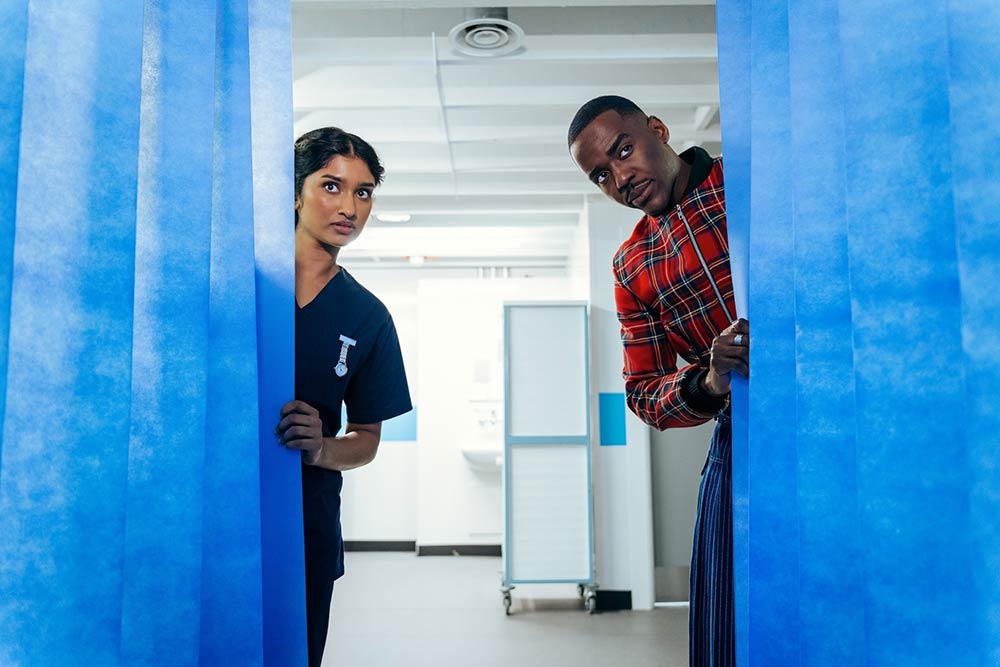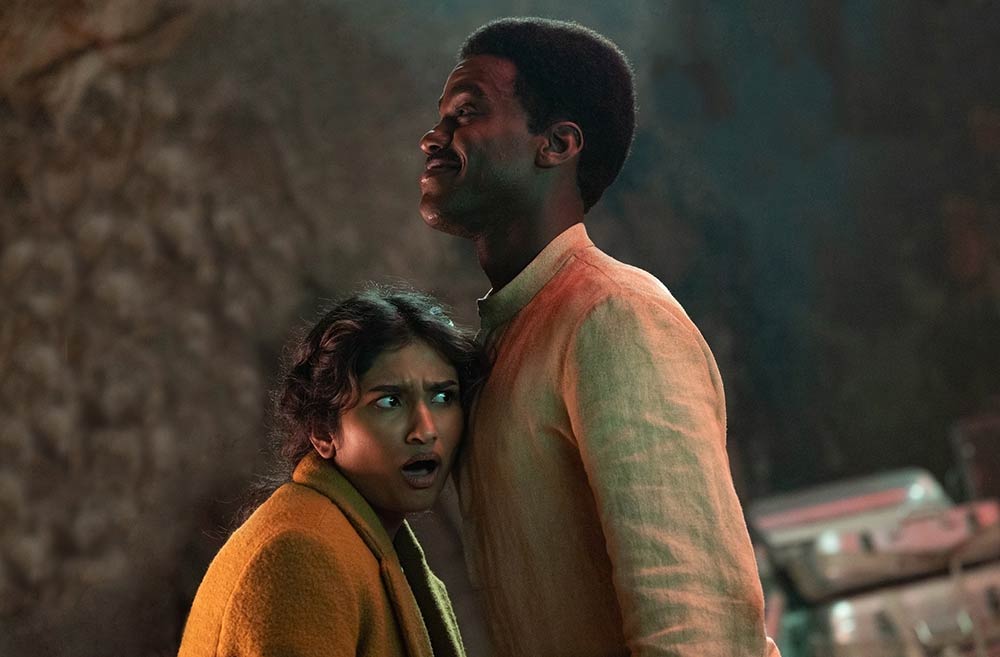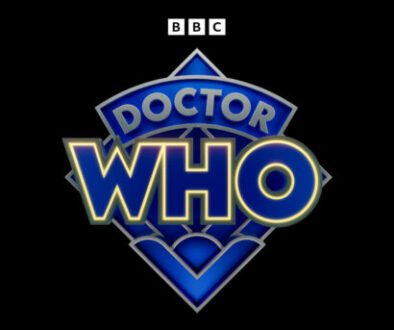Doctor Who “The Robot Revolution” Falters in Execution – 2nd Opinion, Take 1

Gustaff Behr reviews the first episode of Series 15
Doctor Who has long thrived on its ability to mix high-concept science fiction with emotional storytelling and timely social commentary. Unfortunately, “The Robot Revolution” struggles to strike that balance, offering an ultimately uneven episode that falters in execution and character development.
Starting us off, there isn’t much in the plus column other than this opening episode is better than last year’s “Space Babies”, but that is faint praise indeed. It doesn’t help that the first thing the Doctor does after appearing onscreen is blackout a freaking hospital to gain access to information! What the hell?
One of the most troubling aspects of the episode is how casually it overlooks this. It’s a moment that raises serious ethical questions: with life-support machines and critical systems likely affected, how many lives were put in danger—or potentially lost—as a result? What’s even more perplexing is the fact that this could have been easily avoided had the Doctor simply used his Psychic Paper, a non-invasive and long-established tool at his disposal. The script offers no justification or reflection on this action. Let’s move on…
The plot itself is nonsensical, but that’s by design and even called out by some of the characters. The use of time travel only complicates matters but at least it isn’t difficult to follow, it just helps paint certain characters in a bad light unfortunately.

For instance, when Belinda is being taken away by the robots, she points out that since Alan was the one who bought the diploma, they should be going after him. Ergo, “go kidnap him, not me!” They do…which leads to the entire planet being doomed for ten years. Yeah, this episode doesn’t really call Belinda out on the fact that had she not tried to throw Alan under the bus, none of the suffering experienced in this episode would have occurred. Snitches get others stitches, I guess.
Unfortunately, this isn’t the only moment where the episode casts Belinda in a questionable light. While she’s entirely justified in confronting the Doctor for acquiring her DNA without consent and treating her like his next “big adventure,” the moral high ground slips away when we recall her earlier betrayal: disclosing the location of the Resistance base to the robots without her allies’ consent. Unlike the Doctor, whose unauthorized scan had limited scope and was non-invasive, Belinda’s choice put lives directly at risk—especially considering the robots had previously shown no hesitation in executing dissenters. The script never fully reconciles this contradiction, and it weakens the audience’s ability to empathize with her.
Belinda is given moments that feel more like posturing than genuine character. “There’s always a doctor standing back while the nurses do all the hard work.” Really, Belinda? Not to downplay how vital nurses are, but tell me, how many amputations, heart transplants, or brain surgeries have you performed lately? The line may aim to elevate her profession, but it comes across as reductive and dismissive. While nursing is undeniably vital, the remark flattens the collaborative nature of healthcare.
Later, when she asserts, “I don’t need you to fight my battles for me,” it reads less like authentic independence and more like a scripted declaration of strength. In truth, without the Doctor’s intervention, Belinda would have been roboticized early on. He not only saves her life multiple times but also provides her with the means to ultimately defeat Alan. Her survival, agency, and ability to fight back are directly tied to him. The attempt to craft a moment of empowerment feels unearned and more concerned with political optics. Also, without the Doctor’s TARDIS, you’re pretty much stuck on that planet.

The Doctor, unfortunately, doesn’t emerge from “The Robot Revolution” looking much better. There remains a persistent tonal dissonance in how this incarnation navigates empathy, authority, and interpersonal dynamics. It’s increasingly jarring (or cringy as the youngsters say) to hear a character who is over two thousand years old referring to young women as “babes” every other minute—not because the Doctor can’t be playful, but because it often feels incongruous and teetering into uncomfortable territory rather than charm.
Likewise, the Doctor’s moral compass seems to swing wildly depending on the episode’s needs. In “Dot and Bubble”, he’s reduced to tears over a society’s racial prejudice towards a black man trying to save their lives and yet here, he’s shown gleefully celebrating a man being transformed into a sperm cell and literally vacuumed up by a robot. It’s played for laughs, but the dissonance is difficult to ignore. Are we really meant to cheer alongside him?
On that note, the show’s insistence on portraying the Doctor as crying every episode has now become grating. Moments of grief and emotional vulnerability have always been a part of the Doctor’s character, but my god! No protagonist in the history of fiction has cried this much. The Fifteenth Doctor cries more than Akira Fudo and that character is from a show called ‘Devilman: CRYBABY’.
It’s just the latest in a long string of emotional breakdowns, only this time it’s for a character the audience have only known for like a minute. While it’s admirable to show male characters expressing emotion, the writing risks flattening that nuance by leaning on tears as the default mode of empathy. The Doctor has demonstrated compassion in countless powerful and varied ways throughout the franchise’s history. It would serve the character (and audience) well to return to that emotional range.

The “AI Generator” is clearly a satire of real-world generative AI technologies that have sparked widespread discussion in the creative industry, but the episode barely touches on it. Concerns about AI displacing human workers is still an ongoing issue, so it’s strange how the show would feature dialogue that occasionally feels as though it was generated by the very tech it critiques. Not only that, but I kept wondering why the clearly labelled ‘AL Generator’ was being referred to as ‘AI Generator’.
The supporting cast, unfortunately, receive very little development and feel more like narrative accessories than fully realized characters. Aside from Belinda, we learn virtually nothing about the other members of the Resistance, their motivations, histories, or perspectives are left mostly unexplored. This lack of depth makes their ongoing hostility toward Belinda even more perplexing since the script repeatedly shows them blaming her for the rise of the robot revolution. While the audience eventually understands that Belinda is indirectly responsible (‘kidnap my useless ass ex-boyfriend, not me’), none of the characters know this at the time. Their resentment seems to stem from the fact that her name appears on a 5,000-year-old space certificate, which is never sufficiently explained. Why that detail would hold such weight in a world governed by robotic overlords I don’t know.
Because of this the entire subplot comes across as a forced attempt to generate sympathy for Belinda, positioning her as unfairly targeted and misunderstood without giving the conflict the nuance or resolution it needs. The tension leads nowhere meaningful; the group continues blaming her, she insists it wasn’t her fault, and then the story moves on. With no emotional payoff or deeper insight into either side, the conflict feels hollow and contrived. Just another missed opportunity in an already underdeveloped ensemble.
In the end, “The Robot Revolution” is a frustrating blend of hollow spectacle, uneven tone, and baffling character choices that leave you wondering how this show, once so deft at juggling heart, humor, and heady ideas, became so muddled. It’s an episode that wants to say something about AI, about grief, about identity and agency, but never commits to any of it long enough to land a punch. Instead, it distracts with tepid action, lazy satire, and a Doctor who’s either morally compromised or sobbing (or both) depending on what the script needs that minute. If this is the best foot forward for the season, then brace yourselves: it’s going to be a long, messy eight weeks.
Asides
PS: Doctor Who: Hooklight from Big Finish released this week and it’s wonderful!








